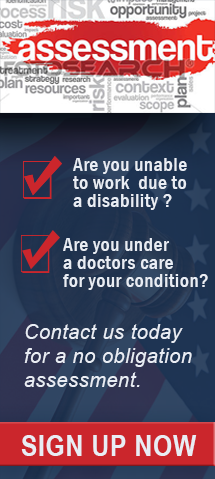Our attorneys represent Social Security Claimants suffering with Depression and other mental disorders. Our lawyers travel to disability hearing offices and appear before Administrative Law Judges (ALJs) throughout the United States including Louisiana, Mississippi, Alabama, New Mexico, Washington and Florida.
The Social Security Disability Listing for Bipolar Disorder is Listing 12.04.
12.04 Affective disorders: Characterized by a disturbance of mood, accompanied by a full or partial manic or depressive syndrome. Mood refers to a prolonged emotion that colors the whole psychic life; it generally involves either depression or elation.
The required level of severity for these disorders is met when the requirements in both A and B are satisfied, or when the requirements in C are satisfied.
A. Medically documented persistence, either continuous or intermittent, of one of the following:
1. Depressive syndrome characterized by at least four of the following:
a. Anhedonia or pervasive loss of interest in almost all activities; or
b. Appetite disturbance with change in weight; or
c. Sleep disturbance; or
d. Psychomotor agitation or retardation; or
e. Decreased energy; or
f. Feelings of guilt or worthlessness; or
g. Difficulty concentrating or thinking; or
h. Thoughts of suicide; or
i. Hallucinations, delusions, or paranoid thinking; or
2. Manic syndrome characterized by at least three of the following:
a. Hyperactivity; or
b. Pressure of speech; or
c. Flight of ideas; or
d. Inflated self-esteem; or
e. Decreased need for sleep; or
f. Easy distractibility; or
g. Involvement in activities that have a high probability of painful consequences which are not recognized; or
h. Hallucinations, delusions or paranoid thinking; or
3. Bipolar syndrome with a history of episodic periods manifested by the full symptomatic picture of both manic and depressive syndromes (and currently characterized by either or both syndromes);
AND
B. Resulting in at least two of the following:
1. Marked restriction of activities of daily living; or
2. Marked difficulties in maintaining social functioning; or
3. Marked difficulties in maintaining concentration, persistence, or pace; or
4. Repeated episodes of decompensation, each of extended duration;
OR
C. Medically documented history of a chronic affective disorder of at least 2 years’ duration that has caused more than a minimal limitation of ability to do basic work activities, with symptoms or signs currently attenuated by medication or psychosocial support, and one of the following:
1. Repeated episodes of decompensation, each of extended duration; or
2. A residual disease process that has resulted in such marginal adjustment that even a minimal increase in mental demands or change in the environment would be predicted to cause the individual to decompensate; or
3. Current history of 1 or more years’ inability to function outside a highly supportive living arrangement, with an indication of continued need for such an arrangement.
Depression
Depression is defined as a mood disorder in which feelings of sadness, loss, and anger interfere with everyday life. This is a common problem with many people but it usually passes in time. True clinical depression is a mood disorder in which feelings of sadness, loss, anger, or frustration interfere with everyday life for weeks or longer.
There are many types of depression:
- Major Depression
- Atypical Depression
- Dysthymia
- Postpartum Depression
- Premenstrual Dysphonic Disorder
- Seasonal Affective Disorder
To meet the medical requirements, a person must have medically documented persistence of at least four of the following symptoms for Depressive Syndrome:
- Loss of interest in almost all activities
- Appetite disturbance with change in weight
- Sleep disturbance
- Psychomotor agitation or retardation
- Decreased energy
- Feelings of guilt or worthlessness
- Difficulty concentrating or thinking
- Thoughts of suicide
- Hallucinations, delusions, or paranoid thinking
The symptoms must cause you to have
- Significant restrictions in your normal activities of daily living
- Maintaining social functioning,
- Maintaining concentration
- Persistence, or pace
- Repeated episodes of decomposition.

